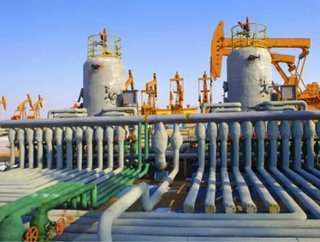Positive signs for Algeria's oil and gas industry

Make sure to check out the latest issue of Energy Digital magazine
Following amendments to Algeria’s hydrocarbon law in 2013, a new bidding round has now been opened in the country, presenting the largest offering so far of 31 concessions with 92 blocks, including areas with significant unconventional potential; however, the success of the newly introduced law can only be determined by the round’s results, say analysts with research and consulting firm GlobalData.
Rabie Khellafi, GlobalData’s lead analyst covering Upstream Oil & Gas in the Middle East and North Africa region, and Gustavo Bianchotti, GlobalData’s senior analyst for Europe, Middle East and North African Upstream Research, state that various changes to Algeria’s hydrocarbon law in 2005, 2006 and most recently in February 2013 have occurred either in response to regional and world market developments, or as the result of Algeria’s shifting political dynamics.
“Under the new law, priority will be given to Algeria’s domestic market supply, and National Oil Company Sonatrach will be confirmed as a majority shareholder in all Algerian oil and gas assets, holding its monopoly over midstream and downstream operations,” Khellafi says. “This means that the firm must retain at least a 51 percent interest stake in any future contracts or projects.”
Read more about the oil and gas industry:
ExxonMobil funds habitat research in Colorado
U.S. oil refineries landscape changing
Oil companies turn rigs to reefs in the Gulf of Mexico
The calculation of the petroleum tax (Taxe sur le Revenu Petrolier, TRP), which represents approximately 50 percent of the total taxes paid by international oil companies (IOCs), has also been amended from a sliding scale method, based on cumulative production values, to the R-factor method, a formula based on cumulative profits to investment.
Given the latest terms and other fiscal measures laid out in the amended law, such as cost recovery limits and an average government take of around 70 percent, the Algerian fiscal terms are not as unforgiving as previously portrayed. In fact, they are within world standards when compared to other countries with equivalent prospectivity. For example, with the fiscal regimes of the Qatari Production Sharing Agreements (PSA), and of the Nigerian Shelf, Syrian, Libyan and UAE Exploration and Production Sharing Agreements (EPSA), the amended Algerian fiscal terms compare favorably.
The analysts believe that the introduction of this mechanism, in conjunction with generous new incentives for unconventional resources and underexplored areas in Algeria, is a positive sign for the country’s oil and gas industry.
“The impact of the 2013 changes could prove more positive on the relationship between Algeria’s government and IOCs, which have shown very little enthusiasm in the country’s previous bidding rounds,” Bianchotti says.
“However, after a decade of fiscal instability, it is yet to be seen whether these changes will be sufficient to entice an industry that has witnessed a simultaneous rise in domestic demand and decline in oil and gas production. Ultimately, the competitiveness of the country’s latest fiscal regime and the attractiveness of its oil and gas investment climate can only be determined by the results of the current round,” Bianchotti says.






